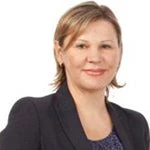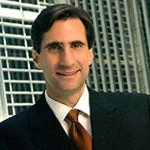In international development, knowledge is our most valuable commodity. The right knowledge applied at the right time could change the lives of roughly a billion people who now live on less than $1.25 per day. In response to their plight, the World Bank Group has set two ambitious goals: to end extreme poverty by 2030, and to boost shared prosperity for the poorest 40% of people in developing nations.
To achieve these goals, we need to use all of the World Bank Group’s assets: our finances; our global presence and convening power; and especially our vast store of development knowledge and experience. If we assemble the best global knowledge, share it quickly, and help countries apply it to local problems, we can empower the poor to shape their countries’ future.
Not all of our knowledge is on a shelf, or in digital and multimedia products. Much is in the minds of our thousands of experts who work in over 120 countries around the world.
But we know that our knowledge does not always move fast enough, or get to the right people at the right time. A recent working paper, written by two World Bank Group colleagues, highlighted this problem (and also got some media attention — not all of it accurate). It’s not just technical problems that stop our digital knowledge from flowing (such as PDFs that are not easily searchable) — our knowledge is also often stuck in organizational silos. Our staff in East Asia don’t talk enough to their counterparts in Africa, for example, and our water experts don’t always connect enough with our health staff. These impediments are a legacy of our organizational culture, structure, and incentives. We can do better.
On July 1, we’re going to break down the walls of those organizational silos, in one of the most significant reforms in the World Bank’s history. We’re reorganizing our knowledge services to create Global Practices and Cross Cutting Solution Areas, to assemble the world’s best experts and knowledge, and make it more accessible to our clients. Wherever our experts are sitting, whatever issue they work on, they will be linked in a much more active way with their colleagues, in areas like education, trade and competiveness, transportation and information technology, environment and natural resources, and energy.
Our client countries and businesses say they want the best experience from around the world, so they can adapt it to their local circumstances. A water project in Senegal can influence what happens in Nicaragua or Bangladesh, and vice versa. Development knowledge should have no boundaries or borders.
The Global Practices will provide a direct link between knowledge and our implementation, adapting based on evidence, improving our work and learning from our clients — all for the benefit of our clients. We have recruited a new team of Global Practice Directors who are global experts in their respective fields, and who will ensure that all Practice staff produce, capture, manage, and share knowledge widely. This will not be limited merely to knowledge the World Bank Group produces. A growing share of our work involves making "South-South" connections to put practitioners facing similar issues in contact so they can learn from one another.
As for our digital knowledge, we already share free of charge a virtual mountain of reports and data. They were downloaded more than 3.4 million times over the past two years alone. Among these are some country-specific technical reports, such as our economic sector work (ESW) and technical assistance (TA) reports. They are very valuable reports to our clients, but they are not light reading for anyone. The authors of the recent study decided to look only at this very narrow and technical class of reports — not all of our reports, as some news reports suggested. The authors discovered, not surprisingly, that nearly a third of the economic sector work and technical assistance reports were never downloaded. Some were actually distributed the old-fashioned way — printed and distributed in the countries that commissioned them, something that is still common in the developing world. Popularity is not the only measure of utility.
Yet parking detailed technical reports in a database after they have been delivered to the Ministry isn’t enough. To reach our ambitious goals, we need to get knowledge into the hands of a wider set of practitioners, citizens, entrepreneurs, civil society experts, and other development actors. Many, if not most, of our knowledge products have lessons that are valuable to countries and companies around the world. Yet we also need to ensure that our future reports are relevant to our clients’ most critical challenges. The Global Practices will allow us to be more strategic, keeping the clients in mind as we plan and produce new knowledge products
Our changes in knowledge sharing require more interactive technology and smarter systems. More important, we need to change our organizational culture. Our global practices will help unlock our knowledge and expertise, to ensure that it remains – and grows – as a global public good.



Join the Conversation